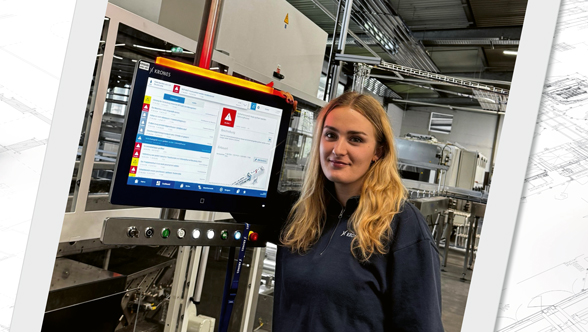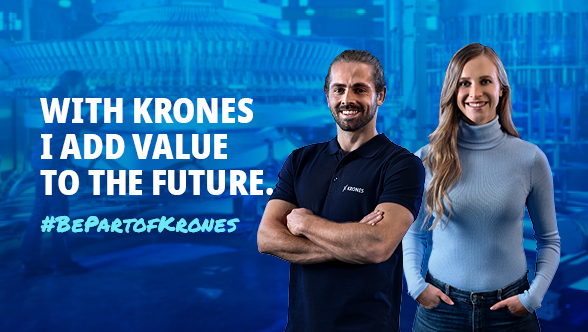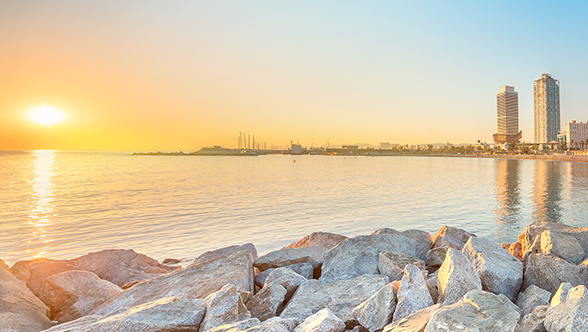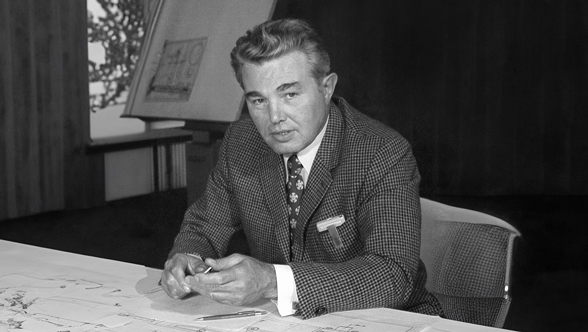In our employee magazine, I also read that this strategy has even qualified as science-based climate targets. Well, that has to mean something, I thought to myself when reading this. But when I looked at Krones’ new climate targets I quickly came to realise that as a layperson, you will soon end up pretty confused by terms and abbreviations like Scope 1, PCF or SBT. But what did I learn during my time at university? All you need to know is where to look it up or who to ask. In this case, the person to ask is my colleague Peter Steger who is looking after the issue of sustainability in our Corporate Governance Department. He was kind enough to answer a few questions I had regarding the new climate strategy adopted by Krones.
Since everybody has been pre-occupied with the coronavirus pandemic, some important issues have unfortunately been neglected – probably the most prominent among them: climate protection. At the end of September, the Fridays-for-Future activists were out on the streets again after a lengthy break, in order to draw attention to the fact that our climate has not stopped changing during the pandemic. And at Krones, too, this issue seems to be as topical as ever – if not even more so – because here a new climate strategy was introduced and advertised only recently.

How exactly does it work, this new climate strategy, where precisely are we cutting down on emissions?
It’s quite simple: the new climate strategy comprises two central targets for reducing emissions. The first relates to the corporate carbon footprint, meaning all company-referenced emissions caused in our enterprise by buildings, traffic, and power consumption at our production facilities. These are referred to as Scope 1 and Scope 2 emissions, and by 2030 we shall cut those by 80 per cent. The second reduction target relates to the Scope 3 emissions from the upstream and downstream parts of our company’s value-added chain. Here, we’re concentrating on our product carbon footprint – in other words: on the carbon footprint of our machines and lines. By 2030, we shall reduce this PCF by 25 per cent, thus significantly helping our customers achieve their climate targets in turn.
Let me get this right: Krones sets itself a climate strategy that helps our customers reduce their emissions?
Exactly. When we design our machines for enhanced energy-efficiency and make sure the components they contain are more climate-friendly, this will downsize our product carbon footprint (Scope 3). But after the equipment has left our plant, the kit will be operated at the client’s premises for years to come – thus making a vital contribution towards the customer’s own corporate carbon footprint (Scope 1 and Scope 2). What it comes down to is this: we pass on our emission reduction to the client – a classical win-win situation.
How has Krones been doing in terms of climate protection so far, and what is the innovative bit about the new climate strategy?
The previous emission target Krones AG had set itself will expire in 2020, and we’ve even exceeded the target value it specifies by a great deal. Our energy managers have done a brilliant job here. But our new climate strategy defines significantly more ambitious goals. It no longer refers only to Krones AG alone, but to all our production facilities in the Krones Group. This is because these, the production halls of our worldwide facilities and subsidiaries, likewise produce many emissions. What’s more, this time we’ve set ourselves an absolute reduction target. This means that every single ton of greenhouse gas, every ton we want to avoid, reduce or – if there is no other way – compensate for, counts.
Please explain to us what science-based targets are, and what role they’re playing for Krones.
Well, you see, in order to demonstrate that we’re pursuing an ambitious, an “authentic“ climate strategy, we’ve had our targets checked by the Science Based Targets initiative. The SBTi is a group of various NGOs, which has tasked itself with ensuring that companies with their climate targets make a genuine, perceptible contribution towards achieving the globally recognised reduction targets – such as the Business Ambition for 1.5°C global warming. Once a climate target has passed through the stringent, independent validation process of the SBTi and verifiably meets the test criteria, it is permitted to call itself a ‘science-based target’.
This means our new climate targets are science-based?
Correct, Krones’ climate strategy has officially been confirmed as science-based targets. Thus, our executive board sends out an unambiguous signal: we’re taking our sustainability duties seriously. Looking good is no longer the primary goal. As of now, the primary goal is to harness climate protection as an opportunity for our business.
To return to our introductory remarks: what influence does the coronavirus pandemic exert on Krones’ climate strategy?
People might think that the issue of sustainability is put on the back burner by the pandemic. But exactly the opposite is true: sustainability issues are right at the top of the agenda, for us, our customers, investors and employees. Climate change, human rights, or occupational safety have all gained new momentum due to the pandemic, not only in our company but at our stakeholders as well. Krones’ climate strategy is the first new sustainability target that we’ve meanwhile been advertising. But it will not remain the last ambitious goal we shall be setting ourselves here. At the moment, we’re busily working on several new sustainability targets, so as to further upgrade our company’s beneficial contribution towards ensuring a viable future for our environment, our society and our staff.
Well, I would say we’ve all learned something here, haven’t we? And since you cannot possibly find a nicer conclusion, I would now like to finish by saying “Thank you, Peter, for taking the time talking to me!”, and I will, of course, keep on doing my small bit to help support these climate targets.










